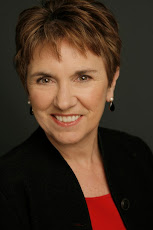Secrets are powerful because they can control you. Very often, the problem with a secret is not the content of the secret itself, but what you must do to keep the secret information out of sight. In a family, it is the proverbial skeleton in the closet and everyone in the family is held responsible to remain on guard in case someone outside the family gets too near the closet door.
Whether secrets are passed down unbeknown to others or people actively collude to hide the information, it is fair to say that as a young child you had no choice in the matter; you were more or less coerced to keep the family secret. As an adult, you are now enforcing that secrecy on yourself. You may not be aware of it but you are the one making the choice to keep certain information away from prying eyes. The secret is just that — only information — and the choice is yours to tell it, to admit it, or to keep it hidden.
By admitting the reality of what is, you deflate the power of the secret. You can't drink away, exercise away, eat away, work away, or by any other effort rationalize away the power of the secret. The only way is to end denial, to admit, to open the closet door — that is the only way to get free.
Tuesday, August 10, 2010
Subscribe to:
Post Comments (Atom)

I really enjoy, take comfort, and gain strength from your blog posts. I am in a situation now where I have a secret....it's my husband's sex addiction. Now that he's told me, I feel at a loss over what to do about someday telling our children. I'm secretly hoping I won't ever have to, but I live in fear that the topic will come up one day and I really don't know how I would handle it.
ReplyDeleteIn addition, I wonder if there is any value in our children someday really knowing who their father is/was, warts and all. Are there some secrets that should never be told?
The telling of secrets is always delicate. My experience when it comes to sex addiction, and I speak in general, is that most often children are aware of some of the behavior. That is often a surprise to parents. I don’t know the age of your children, but children need to be told for three big reasons. 1) often they know so it validates what they already know so they don’t feel as if they are crazy when people act like it isn’t happening, 2) exposure. If it is likely they will find out via the media, another friend or sibling, etc. it is best you tell them, and 3) for safety issues. This is only relevant if the person acting out is engaged in child pornography.
ReplyDeleteIf the children are early adolescent or younger the word addiction has little meaning and is often too scary. If they are told, you can use words such as infidelities. There is also soft disclosure where you acknowledge problems between you and your partner and you can say there have been secrets and there is anger/sadness. You let them know you are handling and coping with it and that it is not their fault. This validates and they recognize the stress but you don’t offer details. If there is disclosure about the sexual behavior specifically, it is best if it is done with both parents, but that too is dependent on if both parents are seeking help with this. I strongly refer you to my book Deceived, and an article I wrote on disclosing to children that is posted here from 1/6/09. It will be much more specific.